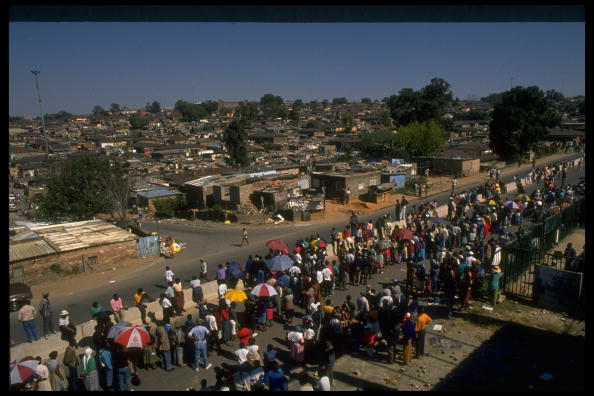South Africa survived colonialism followed by apartheid, and most recently, a new pandemic, HIV/AIDS. While we are living through the aftermath of the old order, the words often attributed to Italian philosopher, Antonio Gramsci, could not be truer: “The old is dying and the new struggles to be born. Now is the time of monsters.”
The dragons we need to slay are clear. We have unacceptably high levels of poverty, youth unemployment, child illiteracy and nutritional stunting. All of which are systematically undermining the next generation’s ability to enjoy freedom.
That said, these are but the more visible aspects of our life together. There are others – the more subtle, social dimensions.
In 2019, non-racialism – the bedrock of the new South Africa – struggles to find relevance in the public imagination in light of the disillusionment many experience in the new political dispensation. It remains devoid of substantial weight and consequence.
Its original purveyors did not theorize it or write about it extensively, making it all the more elusive. What we do know is that race is a social construct and that it has no biological grounding. While it does not exist in a scientific sense, race has profound political, social and economic implications. And it continues to be an undeniable fault-line within South Africa.
Loading...
What is clear is that non-racialism does not mean not-seeing-race-ness. In this lesser sense, it mimics the American notion of a post-racial society. It is based on the myth that 1994 symbolized a tabula rasa – a blank page. But 25 years later, the past haunts us.

In our public life, we often find ourselves in a rinse-and-repeat cycle in which an offensive action is followed by public uproar and reactive debates. In this polarizing space, the spotlight remains on rabid racists, leaving implicit and internalized anti-black racism unchecked – both of which affect most South Africans.
Political entrepreneurs – understanding the wounds we carry as a nation – capitalize on the moments of uproar by playing on these incidents. What happens in the context of the misuse of our racialized experiences is that well-meaning citizens opt to shun any references to race in order to maintain respectability. This tempts us to see race talk as unproductive rhetoric, and not as a useful language to name our experiences with one another in this country.
In our public life, talk about the past has similarly been weaponised. Our history is either denied or it is deployed to delegitimize, to silence, and to condone the inexcusable. But it is exactly in this moment that we need more robust and critical engagement with our histories and their effects in the present – not less.
When we actually grapple with the historical records, the findings are chequered. History refuses to simply serve as a pass or a trump card. It is far too unruly and intricate to merely be functional. History demands to be reckoned with as a way of understanding the processes that led to the present. A more accurate way of understanding it is as an unfinished story. It has no end and it implicates us all.
A way we can begin to participate in the unfolding of our history is to infuse non-racialism with substance. We need a larger project that rigorously surfaces our experiences at the coalface of the color line. Scholars in the social sciences and the humanities as well as fiction writers have no doubt begun this theorising labor, and their work has to make its way into the mainstream. The process of naming the thousands of experiences we have with each other can begin to inform our imagination about what it means to simultaneously be inclusive, rooted in Africa and released from Europe’s orbit.
The project of naming our experiences for ourselves is an act of power. In fact, the true might of colonialism and apartheid lay not in their arsenal but in their ability to name us, define our borders, to codify our laws, and thus, frame our self-imagination.
In this moment, as South Africa reaches the quarter of a century mark, it is imperative that we take a fresh look at the past. Not merely as a story of victory, but as an incomplete struggle. At 25, all South Africans need to join the struggle, knowing that aluta continua and that the country we inherited in
1994 is ours to continually liberate.
We are part of the same cast of characters in history’s production of South Africa, and we are on the stage now.
– Dr Sebabatso Manoeli is a historian and non-profit professional. She serves as an Innovation Director at the DG Murray Trust. Previously, she was a History Lecturer at the University of Oxford, and at Stanford University’s Montag Center for Overseas Studies. She consulted for the African Union Commission’s Department of Political Affairs and the Centre for the Study of Violence and Reconciliation on transitional justice, as well as the African Peer Review Mechanism.
Loading...
